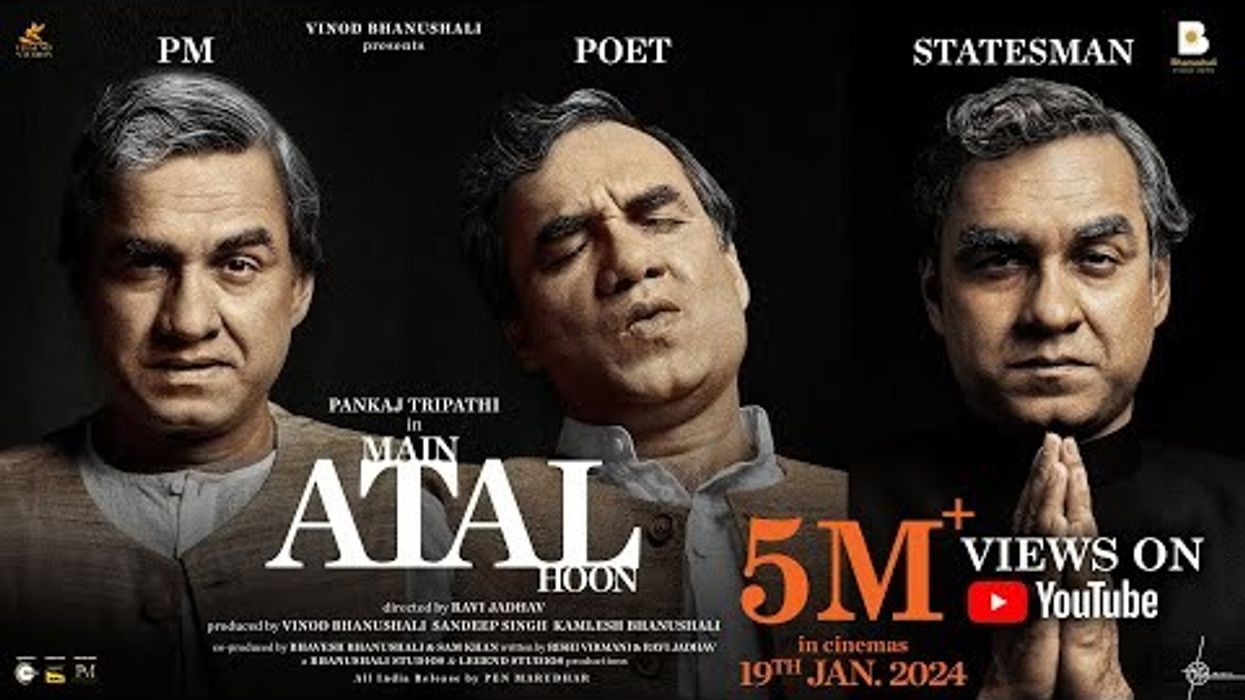Helmed and co-written by the National Award-winning director Ravi Jadhav, Main Atal Hoon is a biographical drama that delves into the life and legacy of one of India’s finest Prime Ministers, Atal Bihari Vajpayee.
The film tries to capture the essence of the leader’s eventful journey, offering a narrative that celebrates the political acumen, resilience, and unwavering commitment that defined his personality and tenure as the Prime Minister of India.
The film begins with a glimpse into the protagonist’s formative years, providing the audience with an understanding of the events and influences that shaped the leader's character. The storytelling is informative but oversimplified. It tries to blend historical accuracy with dramatic elements to keep the audience captivated but, alas, fails to do so more often than not.
One of the film’s weaknesses lies in it being extremely rushed, with no attention to detail in recreating the political landscape of the time. Jadhav, who has several commercially successful and critically acclaimed Marathi films to his credit, is known for his attention to detail. However, he fails to make the most of his knack in his latest directorial. He tries to navigate the complex political terrain of Vajpayee’s time in a slapdash manner. The screenplay is sloppy, creating an incohesive narrative.
However, the casting choices deserve applause, as Pankaj Tripathi in the titular role of Atal Bihari Vajpayee delivers a stellar performance, capturing the charisma and conviction of the real-life figure. The supporting cast also excels in their roles, bringing to life the array of characters who played pivotal roles in the leader's political journey.
The film portrays the personal struggles of the protagonist, offering a glimpse into the sacrifices made. It humanizes the political figure, showcasing vulnerabilities and moments of introspection that add depth to the character.
The cinematography is good, capturing the grandeur of political arenas, the vibrancy of public events, and the intimacy of private moments. The director’s use of symbolism and visual metaphors adds a layer of sophistication to the storytelling.
Main Atal Hoon occasionally tends to gloss over certain aspects of the leader's tenure. The film could have explored these elements with more nuance, providing a more balanced perspective on the challenges faced and decisions made.
In conclusion, Main Atal Hoon stands as a rushed tribute to one of India's finest Prime Ministers.




